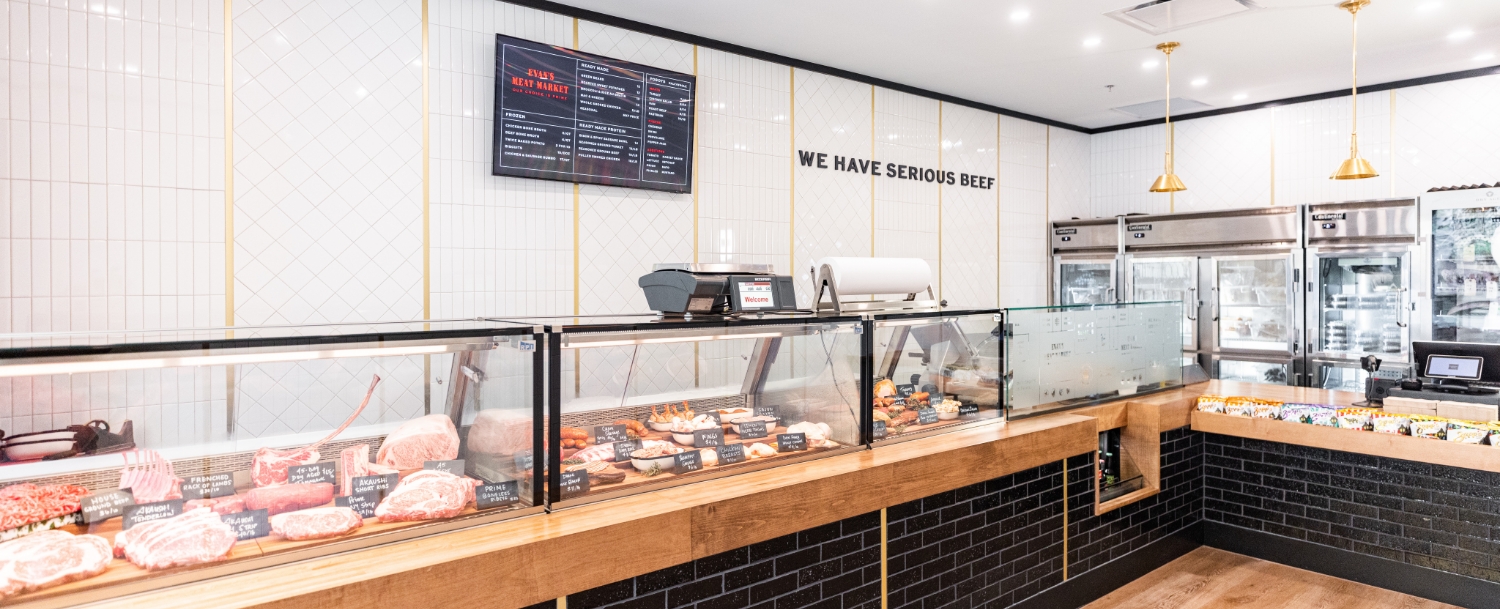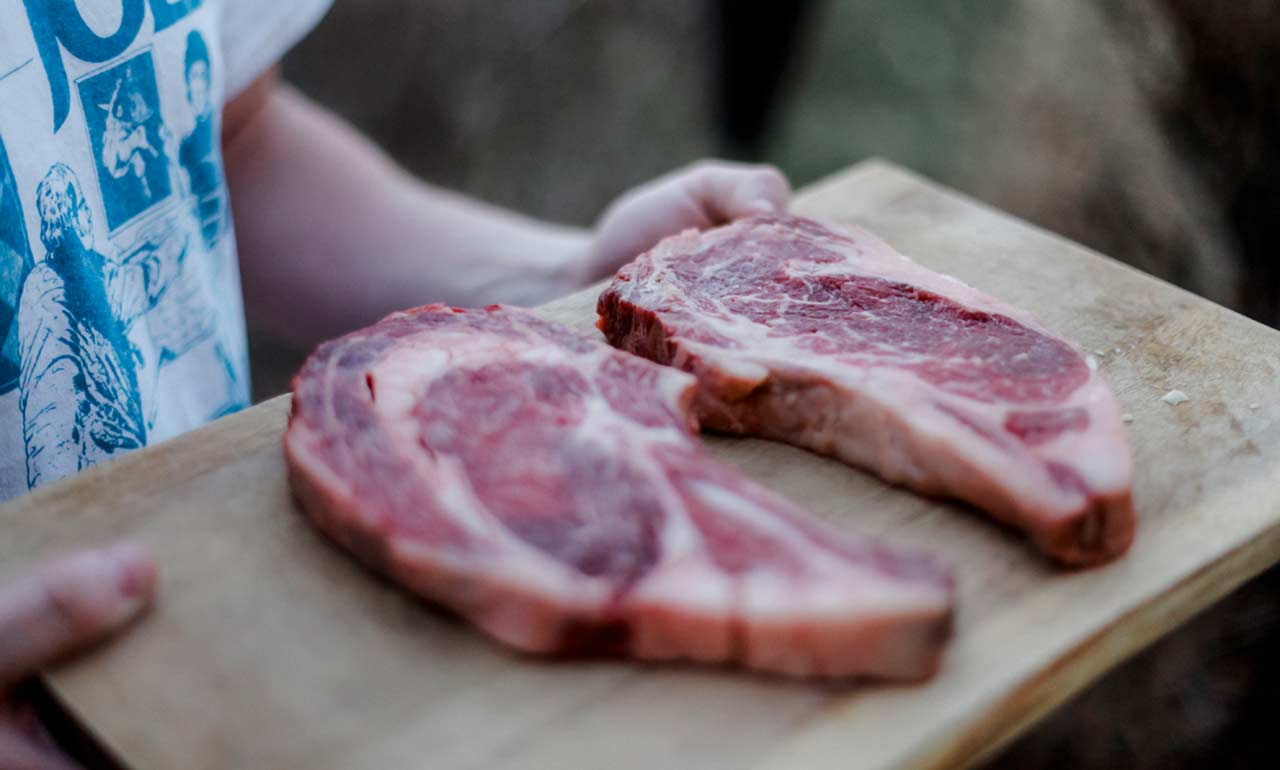Bagley Meat Market Edwardsville IL – Your Local Destination for Premium Meats
Bagley Meat Market Edwardsville IL – Your Local Destination for Premium Meats
Blog Article
Why Purchasing at a Local Meat Market Guarantees Fresh, High-Quality Cuts
Shopping at a local meat market offers distinct benefits that commonly go undetected by consumers accustomed to larger retail chains. These markets supply straight accessibility to fresh, top notch cuts, an outcome of decreased transportation time from ranch to respond to. This not only enhances taste yet also supports neighborhood farmers, fostering community partnerships and lasting methods. Rigorous quality control determines make certain that each acquisition meets high requirements of safety and security and freshness. Yet, the ramifications of selecting neighborhood extend past immediate advantages, motivating a better evaluation of what this option really indicates for both consumers and the neighborhood economic situation.
Benefits of Local Sourcing
In the realm of food procurement, the advantages of neighborhood sourcing stand apart prominently. By buying meat from neighborhood markets, customers gain straight accessibility to items that are commonly fresher and more flavorful than those found in bigger, industrial grocery stores. Local sourcing reduces the moment and distance food travels from farm to table, which not only boosts taste yet likewise maintains nutritional value.

In addition, regional sourcing usually supplies openness concerning the beginnings of the meat. Customers can ask about the farming practices utilized, animal welfare criteria, and whether the meat is natural or grass-fed. This info equips shoppers to make informed choices straightened with their worths.
Quality Assurance Criteria
Local meat markets commonly stick to strenuous quality assurance requirements that guarantee the items used fulfill high safety and freshness benchmarks. These requirements normally include various stages of the meat production process, from sourcing to managing and storage space.
First, neighborhood markets commonly establish stringent distributor criteria, making sure that only trusted farms and producers are used - bagley meat market edwardsville il. This minimizes the probability of contamination and advertises greater animal well-being standards. Furthermore, numerous neighborhood meat markets execute routine evaluations to confirm that the meat is processed under sanitary conditions, additionally minimizing health risks
Temperature control is another critical element of quality guarantee. Local meat markets often keep track of refrigeration systems to keep ideal storage space temperature levels, making sure that meat remains safe and fresh for usage. The implementation of traceability systems enables markets to track the beginning of their items, offering transparency and liability.
Finally, team at regional meat markets are usually educated to acknowledge indicators of perishing and understand correct handling techniques. This commitment to quality assurance not only boosts the general requirement of the meat yet also cultivates customer trust, making regional meat markets a dependable resource for top notch cuts.
Supporting Regional Farmers
Supporting regional farmers is necessary for cultivating a lasting food system and improving neighborhood durability. When consumers select to shop at regional meat markets, they directly add to the resources of farmers in their region. This not just supports the neighborhood economic climate but likewise reinforces the agricultural field, guaranteeing that it stays vivid and practical.


Furthermore, supporting local farmers fosters a feeling of area and connection between consumers check here and producers. It motivates transparency in food sourcing and instills count on, as clients can develop partnerships with the individuals who increase their food. This direct connection ultimately results in a much more engaged and notified public, which is critical for promoting for sustainable agricultural techniques in the future.
Lasting Practices
Sustainable techniques in meat markets play an important function in promoting ecological stewardship and making sure animal well-being. Regional meat markets commonly prioritize sourcing their products from farms that apply sustainable and honest farming techniques. These techniques consist of rotational grazing, which aids have a peek at this site preserve dirt wellness and lowers carbon exhausts, alongside minimizing making use of prescription antibiotics and hormones in livestock.
In addition, regional meat markets normally highlight transparency in their supply chains. Consumers are given with details regarding the origin of their meat, enabling them to make educated selections that align with their values. By supporting local farmers who exercise sustainable methods, consumers contribute to the conservation of biodiversity and the reduction of transport exhausts related to long-distance meat distribution.
Additionally, several local meat markets participate in waste reduction approaches, such as making use of every part of the pet and advertising off-cuts that could or else go unsold. By promoting a more lasting strategy to meat intake, these markets not just provide high-quality items however likewise contribute favorably to the atmosphere and pet welfare. Basically, buying at a regional meat market aligns consumers with a broader activity towards moral and liable food sourcing.
Individualized Customer Support
Purchasing at a meat market frequently incorporates greater than just the products used; it is likewise about the experience and the relationships constructed between customers and personnel. Customized client service is a hallmark of neighborhood meat markets, establishing them aside from bigger grocery chains. Educated personnel put in the time to comprehend individual consumer choices, making sure that each check out is customized to specific requirements.
Customers gain from professional recommendations on cuts, cooking methods, and preparation tips, cultivating a sense of trust fund and commitment. This individualized communication enables consumers to ask concerns and look for recommendations, leading to informed buying decisions. Personnel members often bear in mind normal customers and their preferences, producing a welcoming ambience that cultivates area connections.
Moreover, personalized solution encompasses special demands, such as personalized cuts or particular prep work approaches, which bigger retailers may not suit. This level of interest strengthens the dedication of neighborhood meat markets to top quality and client satisfaction.
Fundamentally, customized client service not only boosts the buying experience however likewise ensures that customers entrust the very best items matched to their cooking needs, making every go to a fulfilling one.
Final Thought
Sustaining local farmers cultivates community relationships and strengthens the local economic situation, while sustainable methods add to ecological stewardship. Additionally, tailored client service improves the purchasing experience, making regional meat markets a preferred selection for consumers looking for both quality and ethical factors to consider in their food sourcing.
The effects of picking local prolong beyond instant benefits, triggering a closer assessment of what this choice really means for both customers and the neighborhood economic climate.
Supporting neighborhood meat markets click for more likewise adds to the local economic situation. Regional meat markets often check refrigeration systems to preserve optimum storage temperature levels, ensuring that meat stays fresh and risk-free for intake.Local farmers are usually more attuned to the certain demands of their areas, expanding crops and elevating animals that line up with local preferences and choices. Supporting local farmers cultivates community connections and enhances the neighborhood economic climate, while lasting techniques add to environmental stewardship.
Report this page